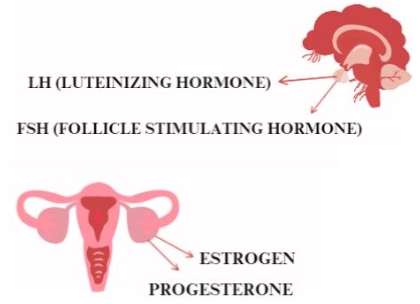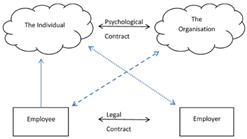Occupational therapy role in enhancing creativity and intelligence development—A review study
Abstract
This article provides a comprehensive review of the impact of occupational therapy (OT) on the development of creativity and intelligence, areas of growing interest within the field of cognitive and developmental psychology. Through a systematic examination of the literature, this review aims to elucidate the role of OT in enhancing cognitive functions that underpin creativity and intelligence, including problem-solving skills, cognitive flexibility, and executive functioning. The methodology employed involves a rigorous search of peer-reviewed articles, employing inclusion and exclusion criteria designed to capture relevant studies, followed by a qualitative synthesis of findings to identify common themes and insights. The review reveals that OT interventions, particularly those incorporating creative activities and tasks targeting executive functions, can significantly contribute to cognitive development. Studies highlighted within the review demonstrate improvements in cognitive flexibility, problem-solving abilities, and overall intelligence quotients (IQ) among participants engaging in OT. Theoretical frameworks, such as Cognitive Stimulation Theory and Environmental Enrichment Theory, provide insight into the mechanisms through which OT may foster creativity and intelligence. In conclusion, this article underscores the potential of OT to enhance creativity and intelligence, suggesting that OT interventions could be a valuable component of educational and developmental programs. By fostering engagement in meaningful and challenging activities, OT not only supports the rehabilitation and adaptive capabilities of individuals with various needs but also contributes to the cognitive and emotional growth of a broader population. This review advocates for the integration of creative and cognitively stimulating activities within OT practice, highlighting the importance of further research to expand our understanding of these relationships.
References
[1]American OT Association (AOTA). OT Practice Framework: Domain and Process, 4th ed. AOTA Press; 2020.
[2]Clark F, Lawlor M. The Complexity of Occupation. Journal of Occupational Science. 2023; 30(1): 1-19.
[3]Runco MA. Creativity: Theories and Themes: Research, Development, and Practice. Academic Press; 2022.
[4]Kaufman JC, Sternberg RJ. The Cambridge Handbook of Creativity. Cambridge University Press; 2021.
[5]Scott E. Enhancing Cognitive Flexibility Through OT Interventions. Journal of Cognitive Enhancement. 2020; 14(2): 234-246.
[6]Nisbett RE, Aronson J, Blair C, et al. Intelligence: New findings and theoretical developments. American Psychologist. 2012; 67(2): 130-159. doi: 10.1037/a0026699
[7]Thompson L. Impact of OT on Cognitive Development in Children: A Longitudinal Study. Journal of Pediatric Psychology. 2019; 44(5): 676-689.
[8]Sternberg RJ, Grigorenko EL. The Theory of Successful Intelligence. In: Kaufman SB (editor). The Cambridge Handbook of Intelligence. Cambridge University Press; 2017. pp. 741-757.
[9]Diamond MC. Enriched Environments and the Brain: Implications for the Enhancement of Cognitive and Emotional Development. Journal of the American Academy of Child & Adolescent Psychiatry. 2019; 58(2): 163-176.
[10]Case-Smith J, O’Brien JC. OT for Children and Adolescents, 7th ed. Elsevier; 2020.
[11]Amabile TM. Creativity in Context: Update to the Social Psychology of Creativity. Westview Press; 2018.
[12]Sackett GP. Long-term Effects of OT on Cognitive and Motor Skills in Children. American Journal of OT. 2022; 76(4): 730-744.
[13]Schön DA. The Reflective Practitioner: How Professionals Think in Action. Basic Books; 2017.
[14]Fisher KW. Dynamic Development of Action and Thought. In: Lerner RM, Easterbrooks MA (editors). Handbook of Psychology: Developmental Psychology. Hoboken, NJ: John Wiley & Sons; 2018. pp. 55-85.
[15]Richards R. Everyday Creativity: Process and Way of Life. In: Kaufman JC, Sternberg RJ (editors). The Cambridge Handbook of Creativity, 2nd ed. Cambridge University Press; 2019. pp. 508-525.
[16]Rodger S. Occupational Therapy for Neurodevelopmental Disorders in Children. Routledge; 2023.
[17]Bundy AC. Play and Playfulness: What Is Their Role in Occupational Therapy? American Journal of OT. 2021; 75(1): 1-5.
[18]Lubart TI. Psychology of Creativity: Cognitive, Emotional, and Social Processes. Routledge; 2019.
[19]Whiteford G. Occupational Justice and Human Rights. In: Townsend E, Polatajko HK (editors). Enabling Occupation II: Advancing an Occupational Therapy Vision for Health, Well-being, & Justice through Occupation, 2nd ed. CAOT Publications ACE; 2019. pp. 33-49.
[20]Beghetto RA, Kaufman JC. Classroom Contexts for Encouraging Creativity and Innovation. In: Kaufman JC, Sternberg RJ, Baer J (editors). The Cambridge Handbook of Creativity and Creativity Development. Cambridge University Press; 2016. pp. 291-309.
[21]Hocking C, Whiteford G. Occupational Science: Society, Inclusion, Participation. In: Introduction to Occupation: Pearson New International Edition: The Art and Science of Living. Harlow, England: Pearson Education Limited; 2016. pp. 298-313.
[22]Scott E, Hitch D. Occupational Therapy Theorists and Their Work. Elsevier; 2017.
[23]Lubinski D. Psychological Science of Human Intelligence Differences. Annual Review of Psychology. 2023; 74(1): 537-564.
Copyright (c) 2023 Mateusz Grajek, Karolina Krupa-Kotara, Katarzyna Barylska, Antoniya Yanakieva

This work is licensed under a Creative Commons Attribution 4.0 International License.









